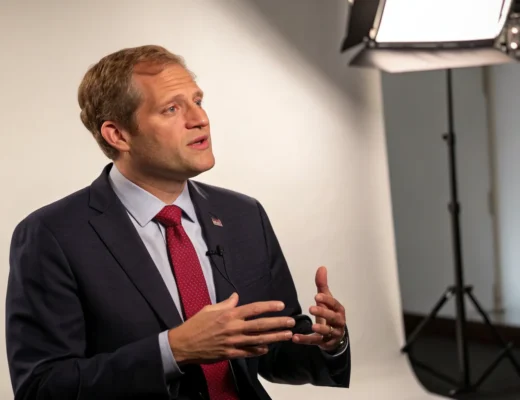Auer Growth Fund: A Remarkable Recovery From Cellar-Dweller to Top-Performing Small Cap Mutual Fund
by / ⠀Finance• News / October 18, 2024
The world of financial investment is known for being especially volatile – a space where fortunes of wealth can turn within a figurative blink of an eye. Numerous stories can be found, of investment funds that seemed to be performing well but suddenly collapsed due to poor performance or external factors like a stock market crash. In such cases, it is incredibly rare to see a fund sink to the bottom and still manage to turn things around – so much so, that it becomes one of the top performers of its category.
Yet, this is precisely the case for the Auer Growth Fund, owned by SBAuer Funds, LLC. A family-owned firm, it was founded in 2007 by Bryan Auer and his son, Robert, who served as Vice President for Investments at Morgan Stanley from 1986 to 2007. However, like many others during the global financial crisis, the Auer Growth Fund got off to a rocky start – experiencing extremely poor performance from 2008 to 2010. This greatly affected the Fund’s Morningstar rating, which is a quantitative assessment of performance for the past three, five, and 10 years. After its first three years, the Auer Growth Fund received the lowest possible rating, which would take several years to recover from.
“Our performance was terrible – we still made shareholders money, but we were in the lowest quartile of the fund performance,” says Robert. “I had a very good track record at Morgan Stanley, and we were able to advertise that and raise over $200 million. However, due to the stock market crash, the fund’s poor performance caused investors to flee and it quickly lost two-thirds of its value. We thought of closing the fund because we lost so much money, but our never-give-up attitude won out, and, through perseverance and our unique strategy, we have been able to become one of the top-performing funds across multiple metrics.”
As outlined by Robert, Auer Growth Fund focuses on stocks that show true potential for growth and meet nine specific criteria, which include 20% quarterly year-over-year revenue growth, price-to-earnings (P/E) ratio of 12 or below, and 25% quarterly year-over-year earnings growth. These criteria are specific and generally firm, with Auer Growth Fund buying almost every stock that meets them.
Although Morningstar’s categorization deems Auer a small-cap mutual fund, Robert calls it a “go-anywhere” fund that buys stocks based on growth potential. Even during the fund’s poor performance period, Robert stuck by his family’s investing formula, something that certainly paid off. Currently, Auer Growth Fund has a Morningstar master rating of four stars – three more than its initial rating. Today, it performs above the market index and its category. From 2021 to 2023, it was in the top quartile of funds’ investment performance and is well positioned to extend further this year. In fact, as of July 2024, Auer Growth Fund has become the top-performing US equity small-value fund on Morningstar.
Robert says that this ‘go-anywhere’ philosophy has paid off – helping Auer Growth Fund to achieve true diversification for its stocks, offering investors a true alternative to the “traditional S&P 500” funds. In fact, the fund’s three-year portfolio risk score (75) is almost equal to the S&P 500 index fund’s risk score of 73.
Auer Growth Fund received the LSEG Lipper Fund Award in 2024, for “Best Fund Over Three Years” in the Small-Cap Core Fund category. Auer was ranked first place among 879 funds for the three-year period ending November 30, 2023, with a return of 24.19%.
Looking back on how the Fund was able to make such a huge comeback, Robert says the unwavering belief in his philosophy is what allowed the company to stay afloat and ride the storm until the market corrected.
“I’m really glad that we’re still standing,” Robert says. “When we were a one-star fund, we really thought about quitting and closing down to cut our losses. But, we had faith in the process. We were able to achieve this by working hard every day. We don’t use robo-picks nor select equities by proxy, committee, or computer. Everything we’ve achieved is by treating effective portfolio management as a full-time job, guided by an effective and tested strategy.”






